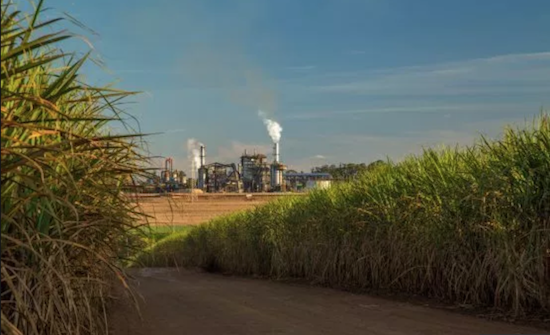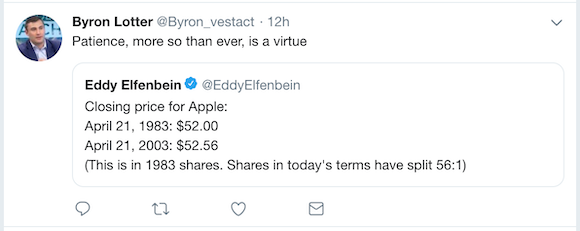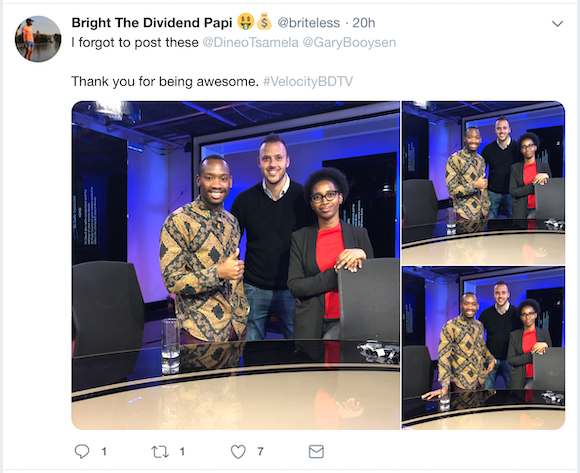Market Scorecard
Yesterday Lonmin shares stopped trading thanks to the deal with Sibanye finally going through. The deal was announced way back in December 2017, but due to court challenges from AMCU it took longer than expected. The merger is a sign of a mature industry, where consolidation is natural, and scale is needed to try keep costs down. Over the last few years, Lonmin has burnt through billions trying to stay afloat. Lonmin has been a terrible investment over the last 10 years due to all their rights issues, to raise cash from shareholders by issuing more shares. Lonmin stopped trading at R14.70 on Friday, where on a split/ dilution adjusted basis its all time high was around R33 000 a share in March 2008. That share price shows how much value has been destroyed for shareholders over the last decade. Mines aren't these money making machines that some people think.
Global markets are still feeling upbeat about the idea of lower interest rates and a suspension of tensions between Mexico and the US. Trump also confirmed that he will meet Xi at the G20 later this month. For now there is calm across the waters of financial markets.
Yesterday the
JSE All-share closed up 0.66%, the
S&P 500 closed up 0.47%, and the
Nasdaq closed up 1.05%.
Our 10c Worth
Byron's Beats
I am a big fan of the bushveld and a big fan of the electric vehicle revolution so this article really tickled my fancy.
Welcome to the world of battery-powered safaris. It talks about safari operators who have started adopting electric game drive vehicles.
It makes sense, guests pay a lot of money to go to these luxury lodges who preach a low carbon footprint. The whole ethos is around sustainable tourism, looking after the land, the animals and the surrounding communities. And finally it has reached a point where it makes financial sense.
I can only imagine that the experience will be greatly enhanced. I have rolled down a hill in a game-drive vehicle with the engine off and it makes the world of difference. You can hear the birds and other sounds of the bush. The smell of diesel will also not be missed. I for one am looking forward to this trend going mainstream.

Michael's Musings
Yesterday afternoon, Tongaat Hulett announced a self imposed suspension from the JSE for the following reason,
"to protect investors in circumstances where there is insufficient reliable financial information in the market on which informed decisions can be made, and accordingly a risk of speculative trading". If you haven't read in the news, Tongaat has to restate their March 2018 figures, and they have to take a massive write down on some of their assets. As a result of too much debt and fishy accounting, the stock is down close to 90% since September last year.
My question to management is, how does suspending trading protect investors? What they probably mean to say is, protect investors from price volatility. Why would investors need "protection" from volatility though? Volatility is part of the risk you take when you invest in a listed company. It is part of the reason that listed shares give higher returns than most other asset classes. What the directors and the JSE have effectively done here is treat investors like children; "We don't think you are mature enough to handle the current situation, so we are taking away the right to trade in our share."
Some people have this misconception that if you suspend a share, which in most cases stops the share price falling more, you are preserving value for the investor. Just because something is suspended doesn't mean it has preserved its value, because when it starts trading again, the share price will tank to the level it would have been anyway.
Take the Steinhoff case, where I'm sure the fraud is much worse than at Tongaat. It continued to trade through all of the uncertainty. For many of our clients it meant that they could get out at around R4 - R6 a share, and then use that money to invest in better companies. If Steinhoff was suspended when the news broke, it probably would have been suspended at around R10 - R14 a share. That would have been dead capital, just sitting in your account for over a year, at an elevated level, doing nothing. When their restated financials were released, the share would have traded at R2, so value distruction happened anyway. Due to Steinhoff continuing to trade, clients could get out earlier - in this case at a much better price - and then used the money for other investments.
Another reason given by management is
"to address any possibility of there being two levels of information in the market arising from the various processes necessary to be undertaken to restructure and reduce the Company's debt". The threat of information leaking to the market is something that every company faces daily, it is not unique to Tongaat. Also, if Steinhoff which operates globally could keep information under wraps during restructuring, I'm sure a regional player like Tongaat can too.
One person on Twitter said to me, suspension protects the buyers. What? If you don't like the risk associated with buying something with dodgy financials, then you don't have to buy it. The only impact on buyers is that they now have less choice for where to put their capital.
So suspending a share doesn't protect value, it hurts current shareholders and it gives buyers less choice. The only reason I can think of for suspending a share is a misguided need by regulators/ management to be seen to be 'doing something' about the current situation.

Bright's Banter
Salesforce is buying data visualisation company Tableau in a $15.7 billion all-share deal, their biggest acquisition ever. This comes on the heels of
Google acquiring analytics startup Looker last week for $2.6 billion suggesting that there's big appetite to make sense of all this big data everyone speaks of.
Tableau will receive about 1100 Salesforce A shares in the deal, equaling $15.7 billion based on Salesforce's share price on Friday. That's a really good deal for Tableau considering that it had a market capitalisation that valued it at $10.8 billion before Salesforce CEO Marc Benioff came knocking on their door.
The Seattle based data visualisation company will keep its chief executive, Adam Selipsky and most importantly its brand. Salesforce, contrary to popular belief is actually based in San Franscisco. According to Marc Benioff, this marriage brings together the world's number one CRM with the world's number one analytics platform.
"Tableau helps people see and understand data and Salesforce helps people engage and understand customers" said Marc Benioff in a statement. Tableau and Looker deals are big signs that technology companies are betting big on the big data race to the top. What are Microsoft and Apple up to?
Linkfest, Lap it Up
If you have a spare $58 million and change, you too can visit the International Space Station -
Space is officially open for business but it won't be cheap
 This is a scary statistic
This is a scary statistic. Start saving early and be consistent, even a few hundred Rand a month can make a huge difference by the time you retire.

You will find more infographics at
Statista
Vestact Out and About

 Signing off
Signing off
This morning there is UK unemployment figures out, where the rate is expected to hold steady at 3.8%. Further than that, there isn't much data to focus on. The JSE All-share is higher this morning.
Sent to you by Team Vestact.



 You will find more infographics at Statista
You will find more infographics at Statista

